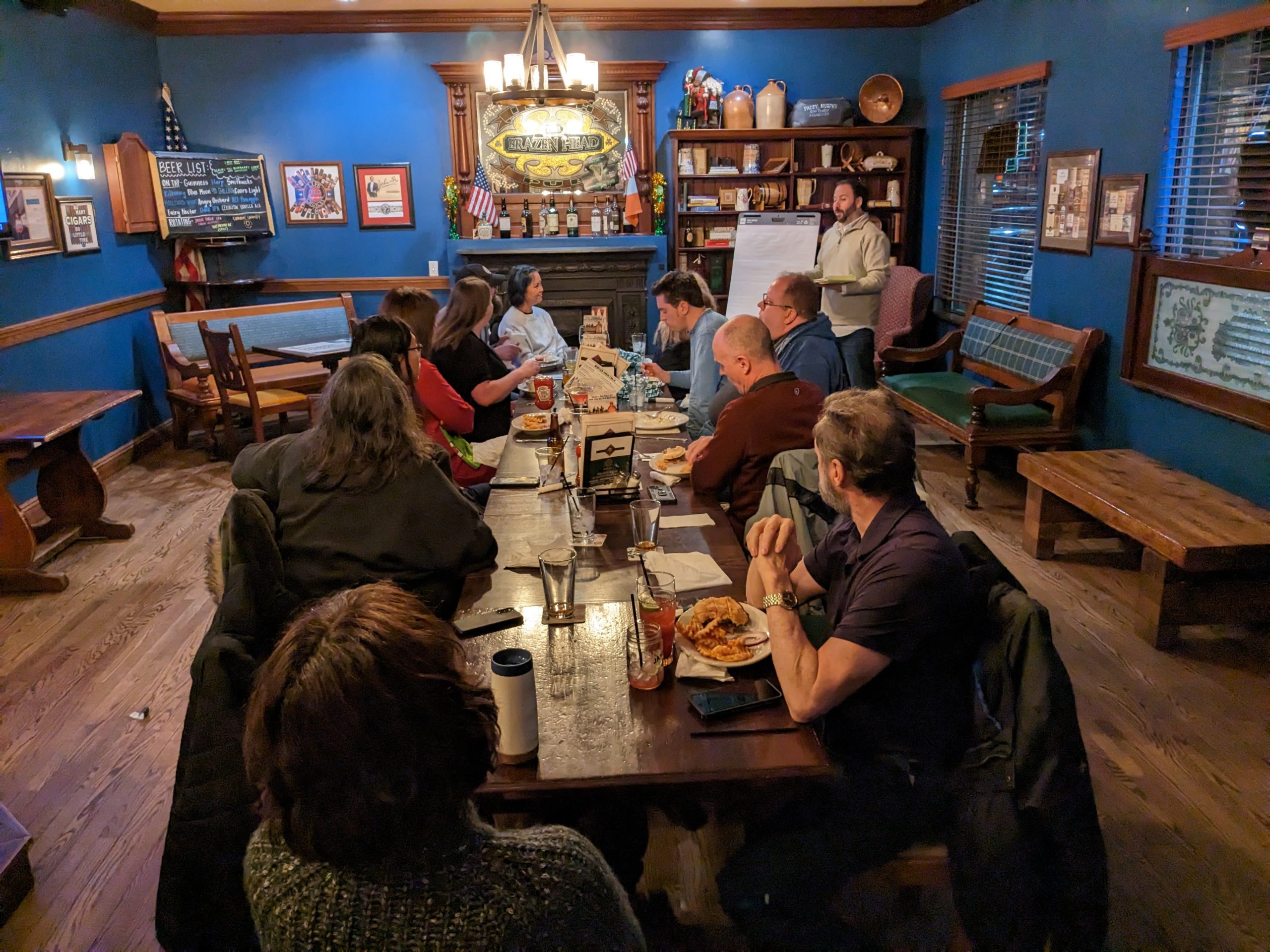Yesterday we kicked off our Exploring Positive Humanism series – a 5-part mini-series examining positive humanism. We’re thrilled to be working with the Omaha Metro Area Humanist Association (OMAHA) to bring this series to the humanist community in Omaha and the surrounding area.
Humanism & Positive Humanism
The conversation started off with a discussion of what humanism is. There isn’t a single definition of humanism, and every humanist organization seems to have a slightly different take on what it means to be a humanist. To get the conversation going, we asked participants what humanism means to them. A thoughtful conversation followed.
As we got ready for this event, we surveyed 27 humanist organizations across the US and Western Europe and found all definitions of humanism contained some iteration of the following points:
- Rejection of the supernatural
- Humans can lead ethical lives and aspire to a greater good without the supernatural
- Human experience and rational thought provide the foundation for moral values
- Pursuit of science and reason
- Some statement of a more free, equal, and democratic society
From there, we turned our attention to an overview of positive humanism, starting with the definition of positive humanism. According to Bo Bennett:
Positive Humanism is an applied secular humanistic philosophy based on the scientific findings of positive psychology that focuses on personal, professional, and societal flourishing.
Positive Humanism: A Primer | Bo Bennett
Unpacking the Definition of Positive Humanism
While short, there’s a lot to unpack in Dr. Bennett’s definition of positive humanism.
- Applied Philosophy: As an applied philosophy, positive humanism focuses on questions of practical concern.
- Humanistic: Positive humanism is rooted in humanist values.
- Positive Psychology: Interested in the flourishing side of the mental health spectrum.
- Individual and Societal: Focused on both individual and pro-social actions.
- Flourishing: Flourishing comes from Well-Being Theory, which we explore in great detail during Session 2 next week.
What followed was a thoughtful conversation on the aspects of positive humanism and what people wanted to learn more about during the upcoming sessions.
If you missed tonight’s session, we hope you’ll be able to join us for future sessions. Head over to our Positive Humanism Events Section to learn more about the upcoming sessions.
Thanks to everyone who came out for our first-ever event! We had a great time discussing positive humanism.






